- News
- Reviews
- Bikes
- Accessories
- Accessories - misc
- Computer mounts
- Bags
- Bar ends
- Bike bags & cases
- Bottle cages
- Bottles
- Cameras
- Car racks
- Child seats
- Computers
- Glasses
- GPS units
- Helmets
- Lights - front
- Lights - rear
- Lights - sets
- Locks
- Mirrors
- Mudguards
- Racks
- Pumps & CO2 inflators
- Puncture kits
- Reflectives
- Smart watches
- Stands and racks
- Trailers
- Clothing
- Components
- Bar tape & grips
- Bottom brackets
- Brake & gear cables
- Brake & STI levers
- Brake pads & spares
- Brakes
- Cassettes & freewheels
- Chains
- Chainsets & chainrings
- Derailleurs - front
- Derailleurs - rear
- Forks
- Gear levers & shifters
- Groupsets
- Handlebars & extensions
- Headsets
- Hubs
- Inner tubes
- Pedals
- Quick releases & skewers
- Saddles
- Seatposts
- Stems
- Wheels
- Tyres
- Health, fitness and nutrition
- Tools and workshop
- Miscellaneous
- Buyers Guides
- Features
- Forum
- Recommends
- Podcast
review
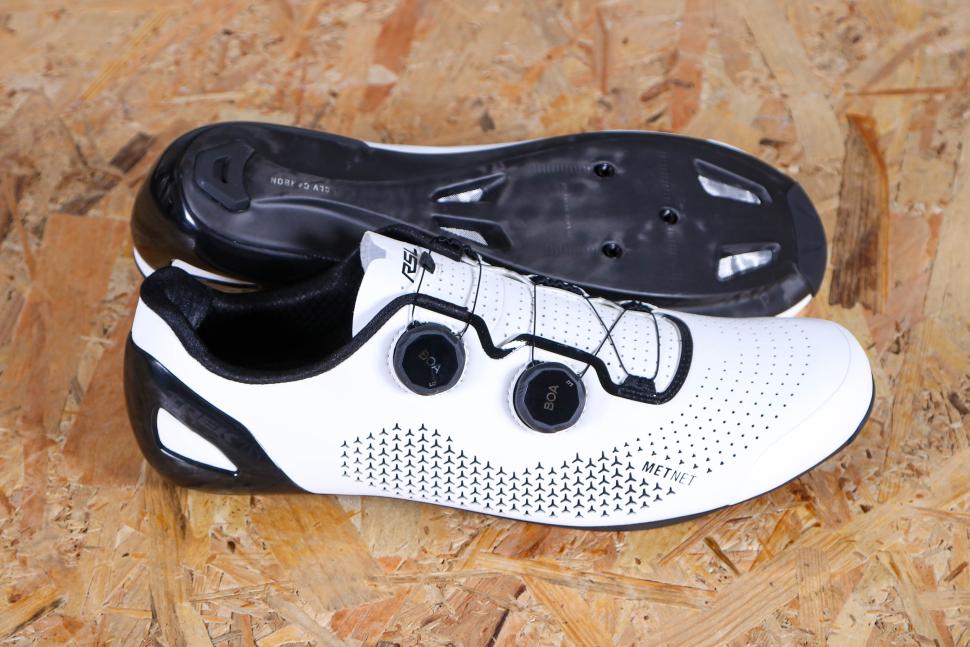 2024 Trek RSL Road Cycling Shoes.jpg
2024 Trek RSL Road Cycling Shoes.jpg£349.99
VERDICT:
Very stiff, racy shoes that can deliver all-day comfort – although they come with a predictably spendy price
Very stiff for ultimate efficiency
Pretty comfortable
BOA Li2s work really well
Insole doesn't work for me
Do they look like £350 shoes?
Weight:
550g
Contact:
At road.cc every product is thoroughly tested for as long as it takes to get a proper insight into how well it works. Our reviewers are experienced cyclists that we trust to be objective. While we strive to ensure that opinions expressed are backed up by facts, reviews are by their nature an informed opinion, not a definitive verdict. We don't intentionally try to break anything (except locks) but we do try to look for weak points in any design. The overall score is not just an average of the other scores: it reflects both a product's function and value – with value determined by how a product compares with items of similar spec, quality, and price.
What the road.cc scores meanGood scores are more common than bad, because fortunately good products are more common than bad.
- Exceptional
- Excellent
- Very Good
- Good
- Quite good
- Average
- Not so good
- Poor
- Bad
- Appalling
The Trek RSL Road Cycling Shoe is the American company's pro-level option if you're looking for a 'normal-looking' cycling shoe rather than the distinctive knitted version I tested recently. These are extremely stiff, comfortable and, predictably, they're pretty pricey.
> Buy now: Trek RSL Road Cycling Shoes for £349.99 from Trek
Our best road cycling shoes buyer's guide has more choices at a wide range of prices.
Trek's had a busy winter, coming out with a whole new range of shoes starting with the Velocis and including the pretty wild RSL Knits mentioned above. If the Knit's socks-and-sandals aesthetic doesn't work for you and you prefer a more sober vibe, then the RSL Road might be right up your street.
RSL stands for Race Shop Limited, and you can think of it as Trek's equivalent to Specialized's primo S-Works sub-brand – its fastest, lightest (and – yep – most expensive) gear. The RSL range is pretty extensive, running from the top-end versions of Trek's bikes through to saddles, wheels and shoes.
Trek says it developed these shoes with input from the Lidl-Trek pro team, so as you'd imagine, it's a seriously stiff shoe; 14 stiffs out of 14, in fact – the sole is without doubt one of the most unyielding of any shoe I've used.
Well and good, then, if you like a stiff sole, but most people don't want the uppers of their shoes to be similarly unyielding. Keen cyclists can spend hours on end in their shoes and foot discomfort can put a real dampener on the enjoyment of doing so. To this end, Trek has developed a technology that it's calling METNET. In essence, it's engineered compliance in the specific areas of the shoe uppers which can otherwise cause discomfort. Trek has achieved this in a couple of different ways across its new range of shoes.
In the RSL Road Shoe, this compliance is achieved via the perforations cut down each side of the shoe. The three-pointed-star perforations are designed to allow the otherwise inelastic PU outer to stretch so that it fits around your foot – and it works pretty well. Tighten up the BOAs and you can see the holes opening outward where the knobbly bits of your foot stick out.
I did some all-day rides in the Trek RSL shoes and there was only one obstacle to a comfortable day: the insole. It's the same as in the RSL Knit, made using a material called Rise by BLOOM.
According to Trek, this is a more environmentally friendly EVA foam alternative made using waste algae. According to me, it's hard and with insufficient arch support. YMMV, of course, and it's fairly easy to replace insoles with ones that suit your feet, but for £350 I think Trek could do well to offer more options; some other brands include a range of inserts with their high-end shoes. You can buy a range of inForm insoles from Trek's sub-brand Bontrager for £25, so if you also don't get on with the stock footbed, it's probably fixable.
The RSL Knit shoe I also tested uses a genuinely mould-breaking construction, and while the sole and insole are the same here, the rest of the shoe couldn't be more different. Here on the RSL Road shoe, the uppers are broadly similar in construction to how shoes have been made for years, although you could reasonably say the flex and improved fit from the METNET perforations is something of an innovation. Though do holes constitute 'game-changing tech', as Trek describes it? I'm not really sure...
Hand on heart – when I compared these back-to-back with other race shoes I own – I couldn't feel a noticeable benefit from the METNET system. To be fair, though, the shoes I've kept and carry on using are the ones that work well for my feet, so what I'm saying here is: these are not discernibly more comfortable than other shoes that fit me well.
One area where I definitely noticed a contrast is in foot retention. The RSL Road Shoes use an external heel cradle carried over from the Bontrager XXX shoes together with directional 'cat's tongue' material inside the heel, but despite these, I found I had to really crank up the BOA tension to really lock my feet in.
In most shoes, I'm prone to overtightening the dials at the start of a ride and end up backing them off after a few miles, but it was more often the reverse here.
The BOAs are Li2 dials, which allow 1mm incremental adjustment in both directions, coupled with the 'pull up to release' function. And these dials are excellent – quick and easy to use, as adjustable as you could ever need, and straightforward to tweak while you're riding, even through overshoes. They're black and rubberised, not the shiny metal version – you need to find another £50 to get the RSL Knit if you want that one.
One undoubted benefit of a shoe with this many holes is breathability. Not to the same level as its knitted big brother, but these are definitely going to help your feet breathe on warmer days. Of course, this does mean they don't offer much resistance to water – but that's nothing a good pair of overshoes can't help with.
Value
In this end of the cycling shoe market, as with just about everything else, the returns really start to diminish pretty hard, and – not for the first time – the question we need to ask is 'What do you get here over and above a shoe priced at – say – £200?'
In fact, Trek's own £229 Velocis shoe makes this question hard to avoid, given that it shares the METNET concept, the same twin BOA Li2 dials and weighs a smidge less despite having only 70% carbon weave in the sole. What you get here is undoubtedly a stiffer shoe, so if that's what you like, then the extra money may be justified. Trek also positions this as a comfortable shoe, and I'd agree overall, although I wouldn't say it was noticeably more comfortable than a bunch of other shoes I've used, some of which come in at a lot less than £350.
Performance aside, a big part of why comfortably-off consumers are willing to pay more than they strictly need to for something is normally related to aesthetics. You buy that Bianchi, those Campag wheels, that Castelli jacket because they look better than the cheaper alternatives, even if functionally the benefits are not really proportionate to the price uplift.
Is that the case with Trek's RSL Road shoes? We try not to focus too much on the aesthetics, as it's all subjective. But for my money, these look more like £150 shoes, and that would make it a tough sell at more than double that.
If you've got £350 to spend, there are loads of options worth considering.
Stu liked the Northwave Veloce Extreme a lot, at a tenner more, and if you're as big a fan of the Bont Vaypors as Suvi is, these are £20 more than the Treks.
At exactly the same price as the Treks, the Shimano S-Phyre RC9 (RC903) shoes have proved popular with road.cc testers over the years, including most recently Steve.
And while Giant might not be the first name you think of in terms of posh cycling shoes, Stu reckoned its Surge Pro shoes its are really strong performers at £299.
Conclusion
Overall, these have efficient and supremely stiff soles, incrementally adjustable BOA dials, excellent breathability and good long-distance comfort – but I didn't get on with the insoles and there's no getting away from their wallet-worrying price...
> Buy now: Trek RSL Road Cycling Shoes for £349.99 from Trek
Verdict
Very stiff, racy shoes that can deliver all-day comfort – although they come with a predictably spendy price
road.cc test report
Make and model: Trek RSL Road Cycling Shoes
Size tested: 46
Tell us what the product is for
Trek says they are 'pro-level shoes that couple classic aesthetics with game-changing tech for exceptionally fast, comfortable and lightweight shoes.
Tell us some more about the technical aspects of the product?
They use Trek's stiffest sole, made with OCLV carbon, coupled with extensively perforated polyurethene ('synthetic leather') uppers. That "game-changing tech"? Well, I think by that Trek means METNET – aka lots of holes. Closure is via 2x BOA Li2 dials.
Rate the product for quality of construction:
8/10
As you'd expect at this price, they are well put-together although I couldn't really say they are noticeably better constructed than a £200 shoe. The insole, as with the recently tested knitted model, is – frankly – disappointing.
Rate the product for performance:
8/10
They are supremely stiff so power-transfer is excellent, although you need the BOAs quite tight to keep your foot locked in place. The venting does a good job of allowing air in.
Rate the product for durability:
7/10
No major concerns. As with many race shoes, the grip pads aren't replaceable, so when they're worn down you'll either need new shoes or to walk more carefully. The BOA dials, however, are replaceable.
Rate the product for fit:
8/10
These fit my feet well. There was enough toe-wiggling room, although I found if didn't tighten the BOAs firmly then my feet could slide forwards until my toes touched the end. This would of course happen with almost any shoes, but it seemed like more tension was needed here than in some other shoes.
Rate the product for sizing:
8/10
Size 46 fitted me well, as Trek's chart suggested it would.
Rate the product for weight:
8/10
These are light, though not exceptionally so for a £350 shoe.
Rate the product for comfort:
8/10
Generally I found these pretty comfortable – I could wear them all day without complaint once I'd changed out the insole.
Rate the product for value:
3/10
A £350 shoe has to do something exceptional for it to feel like good value. It's hard to see what the extra money gets you over shoes in the £180-250 price bracket, for me.
How easy is the product to care for? How did it respond to being washed?
Unlike the knitted upper of the version I recently tested, the PU uppers of these are pretty easy to clean.
Tell us how the product performed overall when used for its designed purpose
Its designed purpose is apparently winning races – so I'm not in a position to comment on that. But as a stiff shoe for riding fast in decent comfort, I'd say it does a good job.
Tell us what you particularly liked about the product
A stiff sole makes you feel like you're putting all your watts into the back wheel and not wasting any. It was pretty comfortable overall.
Tell us what you particularly disliked about the product
Trek says they have 'classic aesthetics'. I'd say they have the aesthetics of a £150 shoe. Also, the insole doesn't work for me at all.
How does the price compare to that of similar products in the market, including ones recently tested on road.cc?
They are a similar price to the top-end shoes from other brands such as Specialized, Shimano and Fizik.
Did you enjoy using the product? Yes – once I'd changed the insoles.
Would you consider buying the product? No – I don't think so.
Would you recommend the product to a friend? Unlikely
Use this box to explain your overall score
I found it hard to score these shoes as they don't do a whole lot wrong, but equally I don't see enough to really justify the price. They are very good shoes, no doubt, so fundamentally that's how I've scored them.
About the tester
Age: 42
I usually ride: On-one Bish Bash Bosh My best bike is: Rose X-Lite CRS
I've been riding for: Over 20 years I ride: Most days I would class myself as: Expert
I regularly do the following types of riding: road racing, time trialling, cyclo cross, commuting, touring, club rides, sportives, general fitness riding, fixed/singlespeed, mtb,
Jez spends his days making robots that drive cars but is happiest when on two wheels. His roots are in mountain biking but he spends more time nowadays on the road, occasionally racing but more often just riding.










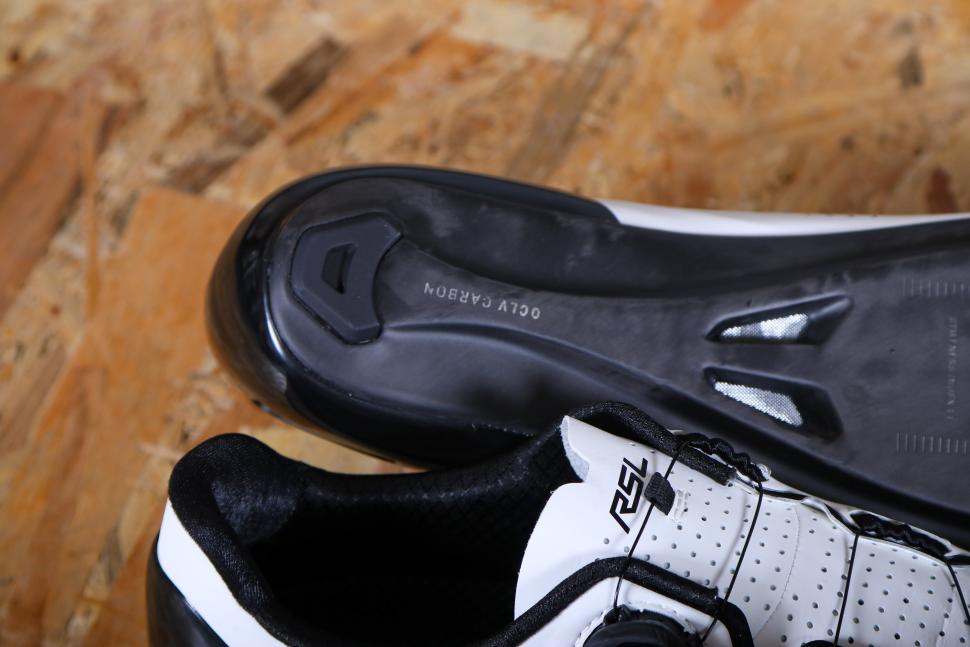



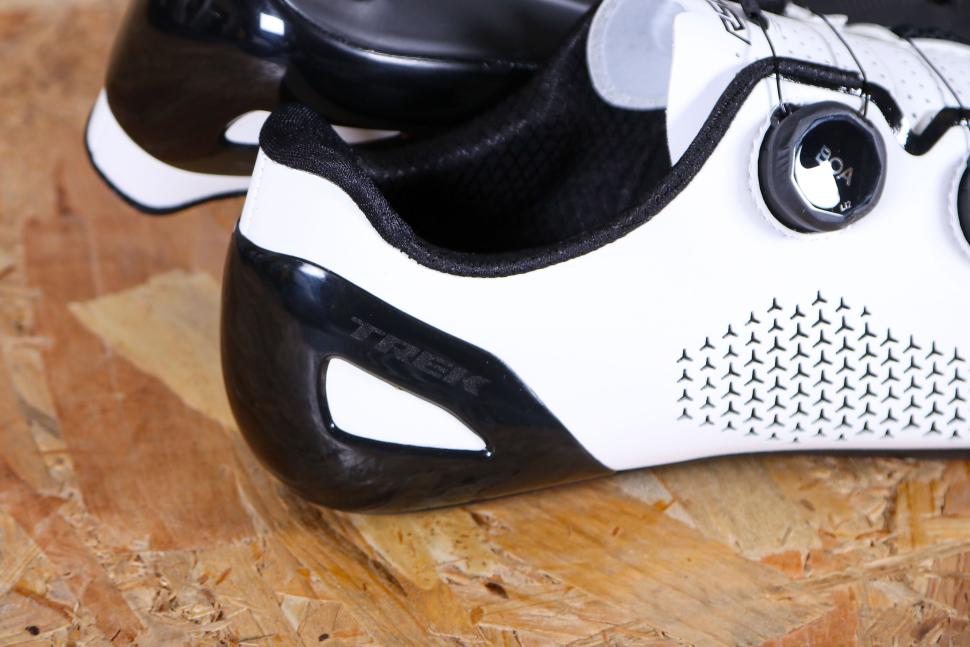

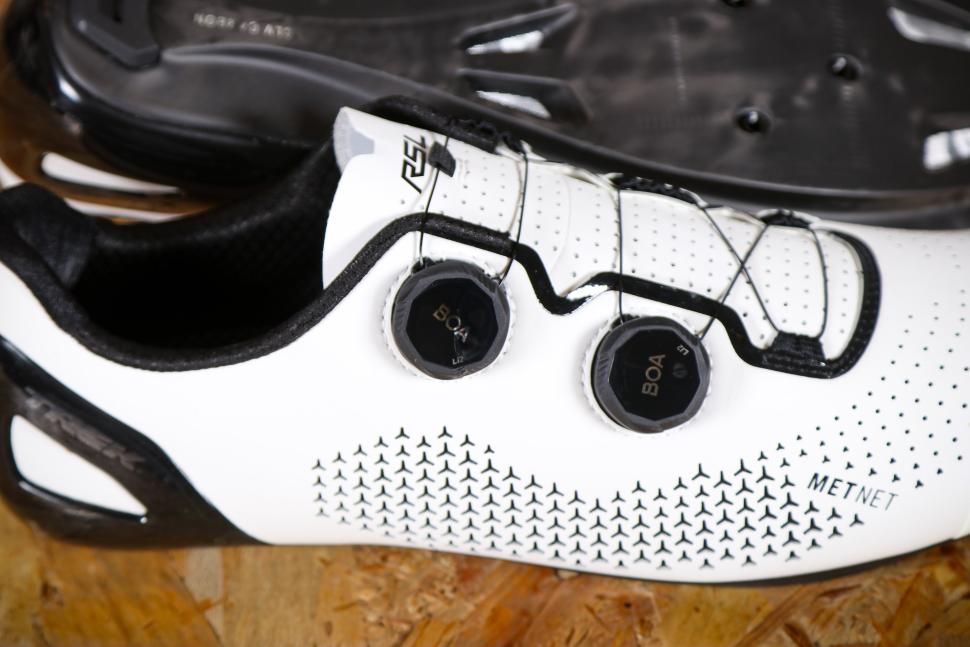

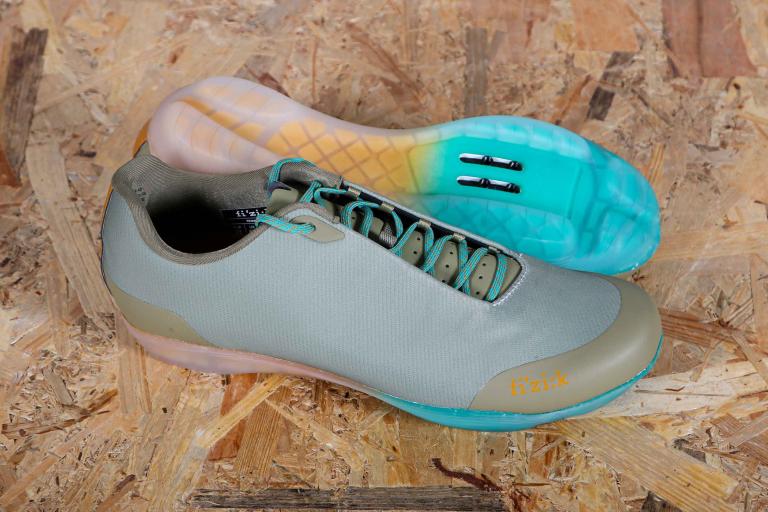
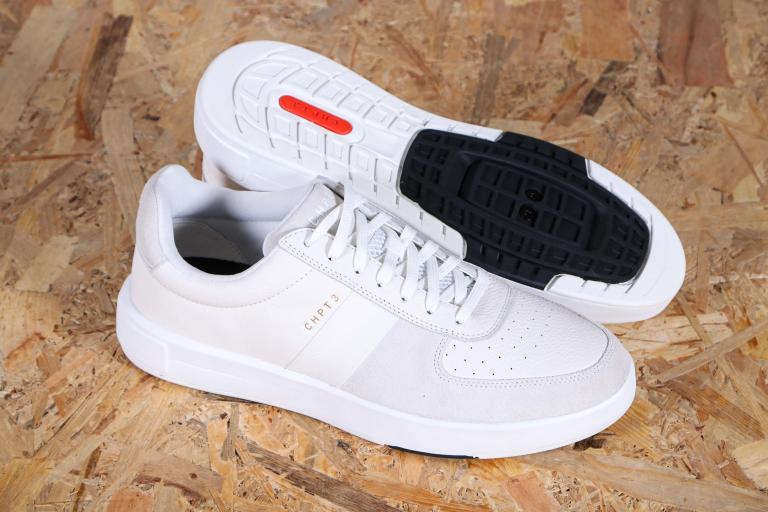
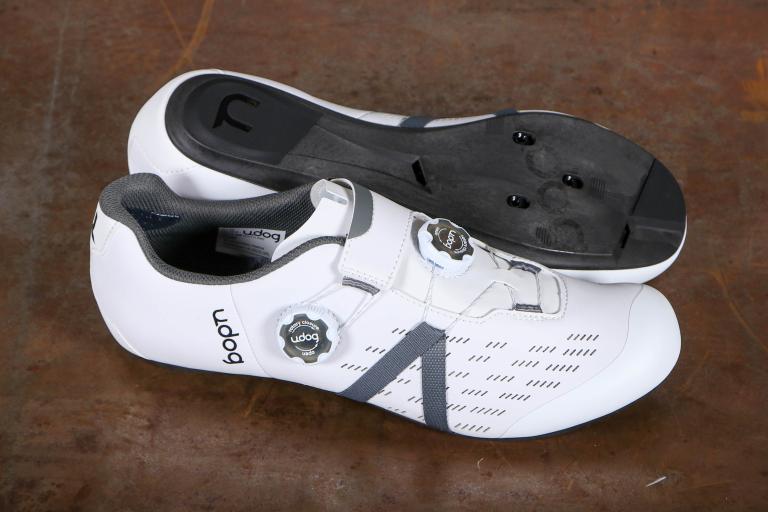
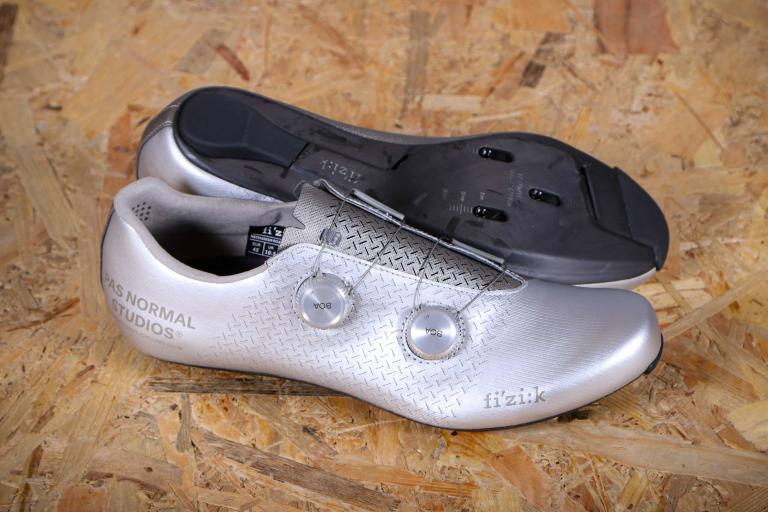
Branching out on the comments (which are getting a bit thorny) I see. I'll just leaf this here.
I concur that rigid bollards can be a danger having broken a couple of ribs earlier this year in a shared cycle lane with central bollards telling...
Nope, it's really just F1. And to really get their attention, they're selling it in colours called Formula Red and Formula Blue...
Definitely recognise this! I'm 41 with a 5 year old and am now starting to see the possibility of riding more again, but Strava tells me I have...
"No, it's OK, really", replies cycling.
Busted!
For the purposes of investment then cycling for transport, that also keeps/get you fit should be prioritised. However, there's an argument that if...
Yeah, that fits. Already seen the helmets, shoes etc. rebrand as Trek. Scott are pretty similar with their Scott and Syncros branding.
Yes, where are the same figures for drivers, Telegraph?
It doesn't. Here are a few more helpful suggestions to make society just work better:...